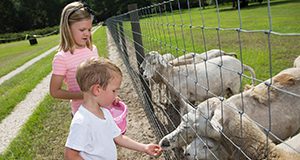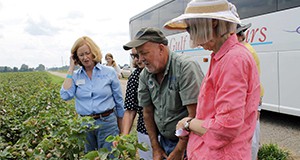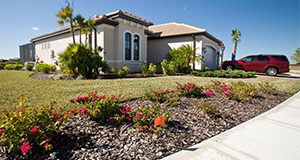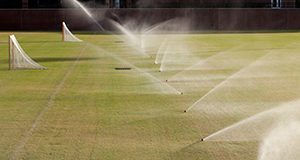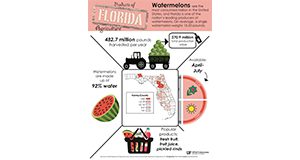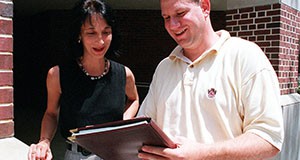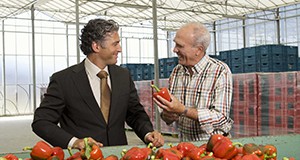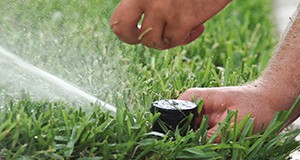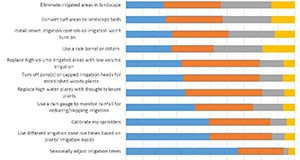Residents may be inclined to over-fertilize their lawns due to pressure to maintain a neighborhood aesthetic. However, this activity can affect water quality. This 3-page document describes a study that was conducted in order to determine if video messages about fertilizer best management practices influenced perceptions of fertilizer use among residents. Written by Amanda D. Ali, Laura A. Sanagorski Warner, Peyton Beattie, Alexa J. Lamm, and Joy N. Rumble and published by the UF/IFAS Department of Agricultural Education and Communication, July 2018.
http://edis.ifas.ufl.edu/wc309
Tag: Joy N. Rumble
Helping Agritourism Visitors Learn During Their Visits
Agritourism is a growing industry in Florida, and combines two of the state’s major assets: tourism and agriculture. This 4-page document outlines ways that agritourism operators can incorporate meaningful educational opportunities into their operation. Written by Kathryn Stofer and Joy N. Rumble and published by the UF/IFAS Department of Agricultural Education and Communication, June 2018.
http://edis.ifas.ufl.edu/wc308
Selecting the Right Type of Educational Experience for Your Agritourism Operation
Agritourism has become a way for consumers to experience agriculture and for the industry to increase agricultural awareness. This 4-page document will help guide you toward selecting the right type of educational experience for your agritourism operation. Written by Joy N. Rumble, Kathryn Stofer, and Hoda Manafian Ghahfarokhi and published by the UF/IFAS Department of Agricultural Education and Communication, May 2018.
http://edis.ifas.ufl.edu/wc304
Using Environmentally Themed Videos to Help Extension Promote Good Landscape Management Behaviors
Water quality and quantity are major issues in the state of Florida, and water resources can be affected by the way residents choose to fertilize and irrigate their lawns and landscapes. This 4-page document discusses the use of videos to promote good landscape management behaviors. Written by Laura A. Sanagorski Warner, Alexa J. Lamm, and Joy N. Rumble and published by the Department of Agricultural Education and Communication, May 2018.
http://edis.ifas.ufl.edu/wc302
Encouraging Landscape Water-Conservation Behaviors #4: Florida Homeowners' Reactions to Messages that Encourage Landscape Water Conservation Practice Adoption
This is the fourth publication in a series focused on improving and encouraging water conservation among Florida residents who use irrigation in their home landscape. This four-page fact sheet examines the impact of differently framed messages on Florida residents’ attitudes toward good irrigation practices and their perceived ability to implement those practices. Written by Joy Rumble, Laura A. Warner, Courtney Owens, Alexa Lamm, and Randall Cantrell and published by the Department of Agricultural Education and Communication.
http://edis.ifas.ufl.edu/wc202
Promoting Ag Awareness through Commodity Fact Sheets
Increasing public awareness of Florida agriculture is a vital step in motivating the public to support agriculture. A basic understanding of Florida’s agricultural products, their impacts on the economy and the environment, and their availability contributes to Extension’s mission to sustain and enhance quality of life. This three-page publication outlines a series of fact sheets with infographics related to specific Florida agricultural commodities. These fact sheets are intended to be visually appealing while presenting an overview of the commodity and its role in Florida agriculture. Written by Kathryn A. Stofer, Jessica Sullivan, Joy Rumble, and Libbie Johnson and published by the Department of Agricultural Education and Communication.
http://edis.ifas.ufl.edu/wc253
Understanding Science: How to Fill the Communication Gap
The industrialization of society has led to many scientific advancements, which have both benefits and controversies. Despite sound science, controversies around scientific issues have led the public to make decisions that disagree with scientific evidence. Why does this gap between science and perception exist? This four-page fact sheet looks at the characteristics of scientists, the media, and the public to help explain how the gap in science communication has occurred while also providing strategies for closing that gap in the future. Written by Joy N. Rumble and published by the Department of Agricultural Education and Communication.
http://edis.ifas.ufl.edu/wc254
Encouraging Landscape Water-Conservation Behaviors: Applying Audience Segmentation to Water Conservation Activities in the Landscape—Defining Segments of the Florida Homeowner Audience and Implications for Extension Programming
This is the second publication in a series focusing on encouraging water conservation among Florida residents who use irrigation in their home landscapes. This six-page fact sheet examines one approach to segmenting Florida residents who use irrigation in the home landscape. It also describes how segmentation can be used to encourage water conservation practices. Written by Laura A. Warner, Emmett Martin, Alexa J. Lamm, Joy N. Rumble, and Esen Momol and published by the Department of Agricultural Education and Communication.
http://edis.ifas.ufl.edu/wc200
Understanding Ag Awareness Programming throughout UF/IFAS Extension: Supporting Citizen Awareness of Food Systems and the Environment
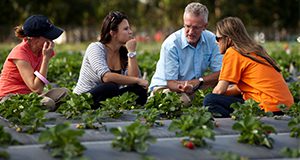
Florida Extension agents around the state are working to increase public agricultural awareness (Ag Awareness). This five-page fact sheet outlines FLorida’s recent Extension efforts in agricultural awareness and highlight future directions to coordinate and strengthen this work, offering ideas for best practices while avoiding unnecessary duplication. Written by Joy N. Rumble, Kathryn A. Stofer, and Libbie Johnson and published by the Department of Agricultural Education and Communication.
http://edis.ifas.ufl.edu/wc168
Encouraging Landscape Water-Conservation Behaviors #5: Segmenting the Audience Based on HOA Status
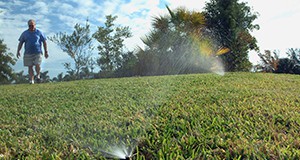
The newest article in the Encouraging Landscape Water-Conservation Behavior series, this six-page fact sheet provides Extension professionals with information on segmenting audiences based on their home owner association status. It provides data that shows how HOA membership potentially affects the barriers that households face when adopting conservation measures and explains how Extension professionals should use this information to enhance programming by strategically planning programs based on the similarities between clients.Written by Laura A. Warner, Alexa J. Lamm, Emmett Martin, Joy N. Rumble, and Esen Momol, and published by the Department of Agricultural Education and Communication.
http://edis.ifas.ufl.edu/wc246
Encouraging Landscape Water Conservation Behaviors Series Overview #7: Personal and Social Norms of Florida Residents Who Use Irrigation in the Home Landscape
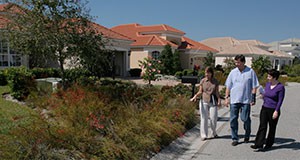
This 4-page fact sheet is the seventh publication in a series focusing on encouraging water conservation among Florida residents who use irrigation in their home landscapes. Extension educators create programs to encourage good irrigation practices and water conservation activities based on personal and social normative beliefs. To help in this goal, the authors examine personal and social norms of Florida residents who use irrigation in the home landscape and describe how Extension educators can capitalize on these positive norms to motivate Floridians to learn and use best water conservation practices. Written by Anil Kumar Chaudhary, Laura A. Warner, Alexa Lamm, Joy N. Rumble, and Randal Cantrell and published by the Agricultural Education and Communication Department.
http://edis.ifas.ufl.edu/wc205
Transparency in Agriculture and Natural Resources: Defining Transparent Communication
When we think about transparency, we usually think about business, public relations, and government; however; transparency is also an important consideration in agriculture and food industries. Defined as openness and the opposite of secrecy, transparency can be conceptualized as a communication strategy that the agricultural industry can use to interact with consumers and other audiences. This 3-page fact sheet defines transparent communication as containing substantial information, incorporating audience participation, and maintaining accountability. Written by Joy N. Rumble, and published by the UF Department of Agricultural Education and Communication, September 2015.
http://edis.ifas.ufl.edu/wc225
Getting the Most out of Social Media

Agriculturalists can use social media as a powerful tool for marketing their products and establishing a brand identity. The goal of this series is to help agriculturalists understand how social media can work for them. The series also discusses the various social media platforms and how to use social media strategically and wisely. Written by Jessica C. Fernandez and Joy N. Rumble, and published by the UF Department of Agricultural Education and Communication, August 2015. (Photo credit: tanuha2001/iStock/Thinkstock.com)
http://edis.ifas.ufl.edu/topic_series_getting_the_most_out_of_social_media
Planning for a Farm Tour: Keeping the Conversation Fresh
Hosting tours at your farm can be a great way to market your products and your farm’s brand. Tours let you tell potential customers how you grow your food, why they should buy it, and who you are as a farmer. This 3-page fact sheet discusses these topics and provides logistical advice for planning and executing a successful farm tour. Written by Claire Mitchell and Joy N. Rumble, and published by the UF Department of Agricultural Education and Communication, August 2015.
http://edis.ifas.ufl.edu/wc219
Encouraging Landscape Water-Conservation Behaviors #3: Developing Extension and Outreach Messages That Encourage Landscape Water Conservation Practice Adoption
Message framing can be an effective tool for crafting messages for a target audience. This 5-page fact sheet explains how Extension can use gain and loss message framing to encourage Florida residents who irrigate their home landscape to adopt water-conservation practices. Part three of the series Encouraging Landscape Water-Conservation Behaviors and written by Courtney Owens, Laura Warner, Joy Rumble, Alexa Lamm, and Randall Cantrell, and published by the UF Department of Agricultural Education and Communication, June 2015.
http://edis.ifas.ufl.edu/wc201
Using the Decision-Ade(TM) Segmentation Strategy to Better Understand Extension Audiences

Decision-Ade™ is a tool Extension can use to better understand how residents with a range of household budgets feel about their utility bills. Analyzing households in terms of both income and utility bill “botheredness” creates a more comprehensive picture of that household’s utility use and its willingness to modify utility consumption relative to other households. This 5-page fact sheet uses survey data of Florida residents to demonstrate the insights Decision Ade™ can provide and how those insights can inform Extension programming. Written by Randall Cantrell, Laura Warner, Joy Rumble, and Alexa Lamm, and published by the UF Department of Family, Youth and Community Sciences, July 2015.
http://edis.ifas.ufl.edu/fy1461
Encouraging Landscape Water-Conservation Behaviors #1: Tailoring Programs To Florida Residents Who Use Irrigation in the Home Landscape
To better promote water-conservation practices among homeowners who irrigate their landscaping, Extension professionals must first have a clear understanding of this target audience’s habits, beliefs, and needs. This 10-page fact sheet recommends that Extension professionals analyze their audiences through several factors, including their interest in water conservation and knowledge of water issues and laws. Written by Laura A. Warner, Emmett Martin, Alexa Lamm, Joy Rumble, and Randall Cantrell, and published by the UF Department of Agricultural Education and Communication, May 2015. http://edis.ifas.ufl.edu/wc199
Encouraging Landscape Water-Conservation Behaviors: Information Seeking Preferences of Florida Residents Who Use Irrigation in the Home Landscape
 How can we encourage Florida residents who irrigate their home landscapes to adopt environmentally responsible irrigation practices? Provide them information they are interested in and deliver it through their preferred information channels. This 4-page fact sheet discusses the topics of interest to this audience and how they prefer to receive information about water-conservation practices related to their home landscaping, and makes recommendations for reaching this audience. Written by Courtney Owens, Laura Warner, Joy Rumble, Alexa Lamm, Emmett Martin, Randall Cantrell, and published by the UF Department of Agricultural Education and Communication, April 2015. (UF/IFAS Photo by Thomas Wright)
How can we encourage Florida residents who irrigate their home landscapes to adopt environmentally responsible irrigation practices? Provide them information they are interested in and deliver it through their preferred information channels. This 4-page fact sheet discusses the topics of interest to this audience and how they prefer to receive information about water-conservation practices related to their home landscaping, and makes recommendations for reaching this audience. Written by Courtney Owens, Laura Warner, Joy Rumble, Alexa Lamm, Emmett Martin, Randall Cantrell, and published by the UF Department of Agricultural Education and Communication, April 2015. (UF/IFAS Photo by Thomas Wright)
http://edis.ifas.ufl.edu/wc204
Talking Local series
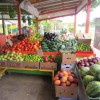 Extension agents can assist Florida farmers and ranchers in the labeling, sale, and promotion of locally-produced products. This six part series of 3- to 5-page fact sheets provides information about Florida consumers’ perceptions of local food to Extension faculty who are interested in local food programming or who work with local food clientele. Written by Joy N. Rumble and Caroline G. Roper, and published by the UF Department of Agricultural Education and Communication, September 2014.
Extension agents can assist Florida farmers and ranchers in the labeling, sale, and promotion of locally-produced products. This six part series of 3- to 5-page fact sheets provides information about Florida consumers’ perceptions of local food to Extension faculty who are interested in local food programming or who work with local food clientele. Written by Joy N. Rumble and Caroline G. Roper, and published by the UF Department of Agricultural Education and Communication, September 2014.
http://edis.ifas.ufl.edu/topic_series_talking_local
In this series:
- Florida Consumer Definitions of Local Food
- Florida Consumers’ Local Food Purchasing Behaviors
- Florida Consumers’ Reasons for Purchasing Local Food
- Florida Consumers’ Food Buying Decisions when Given Local Food Information
- Florida Consumers’ Flexibility with the Term “Local”
- Florida Consumers’ Fresh from Florida Perceptions
Floridians' Perceptions of GMOs: GMOs and Florida Citrus
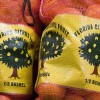 Worldwide and in Florida, food-related issues such as food safety, food security, and use of new food technologies continue to be top concerns. Among the food-related issues are concerns about consuming the products from transgenic plants, often referred to as “GMOs.” This 4-page fact sheet is intended to help Extension faculty understand public perceptions regarding the use of genetic engineering to combat citrus greening. Extension faculty can use this understanding of public perceptions as they develop and deliver programming for clientele. Written by Nicole M. W. Dodds, Laura M. Gorham, and Joy N. Rumble, and published by the UF Department of Agricultural Education and Communication, October 2014.
Worldwide and in Florida, food-related issues such as food safety, food security, and use of new food technologies continue to be top concerns. Among the food-related issues are concerns about consuming the products from transgenic plants, often referred to as “GMOs.” This 4-page fact sheet is intended to help Extension faculty understand public perceptions regarding the use of genetic engineering to combat citrus greening. Extension faculty can use this understanding of public perceptions as they develop and deliver programming for clientele. Written by Nicole M. W. Dodds, Laura M. Gorham, and Joy N. Rumble, and published by the UF Department of Agricultural Education and Communication, October 2014.
http://edis.ifas.ufl.edu/wc182

